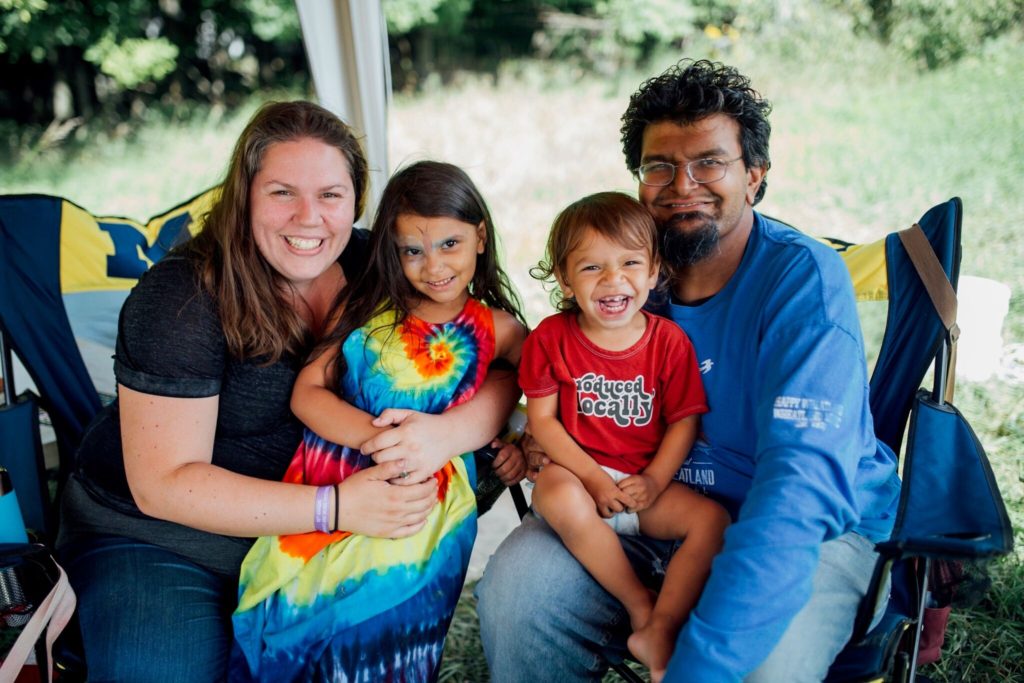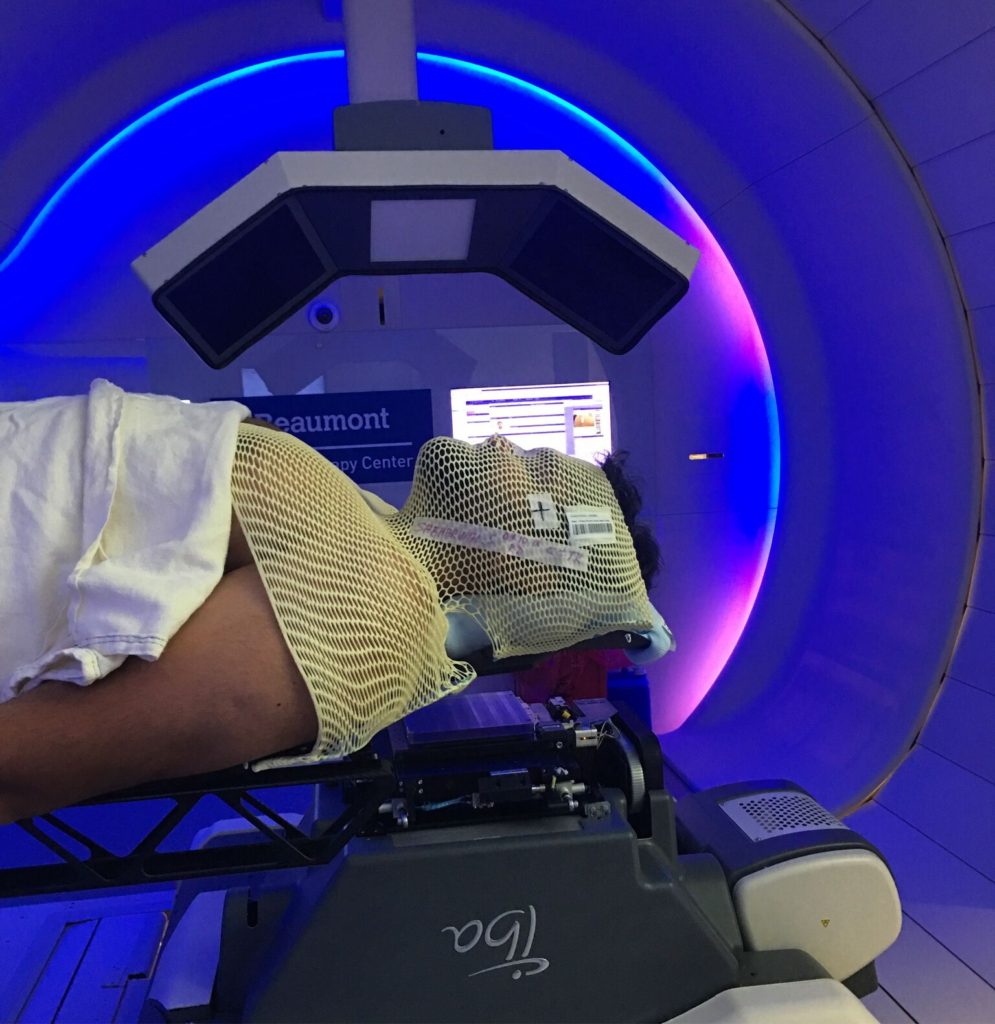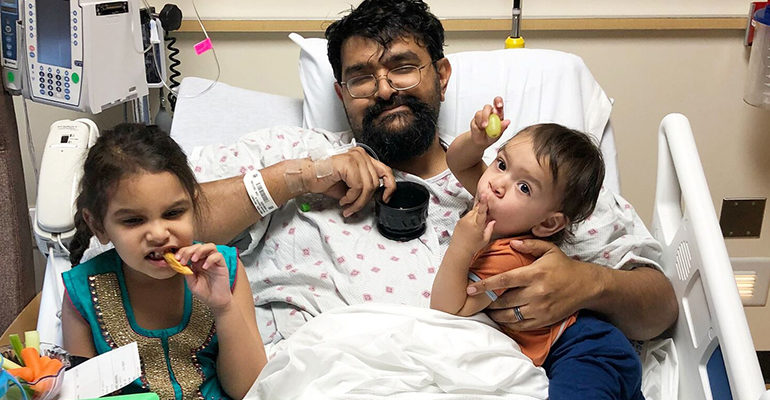Cancer signs maybe evasive, don’t ignore it! Runny noses are annoying. Easy to dismiss. Easily explained — allergies, a cold, the weather.
And that’s exactly why Sammit Sabharwal, D.O., waited so long to seek medical attention. Now, he realizes that mistake could have cost him his eyesight, or even his life.
Dr. Sabharwal was a new parent. He was exhausted. His baby girl’s tears interrupted his sleep. His job at the hospital involved making life or death decisions every day. Stress invaded nearly every aspect of his life.
The 38-year-old spent all his time taking care of others, but failed to take care of himself.

Dr. Sammit Sabharwal surrounded by his family.
Every time he wiped his runny nose, for two years, he didn’t think much of it.
“I didn’t do due diligence like I would with a patient,” he said. “I thought I had a nasal polyp. I figured I’d just ignore it until it became too bad. Looking back on it now, my wife did say she noticed I had a decreasing sensitivity to smell. She said I didn’t smell poopy diapers anymore.”
After his symptoms started, he waited two years to see an ear, nose and throat specialist. The specialist ordered a CT scan, an MRI and a biopsy.
The results showed it wasn’t allergies or a nasal polyp.
It was cancer.

Sammit Sabharwal, D.O., having Proton Therapy
He had olfactory neuroblastoma, or cancer of the smelling nerve. It’s a rare form of cancer that affects about four out of every 10 million people every year.
A surgeon removed the tumor. Then, Dr. Sabharwal needed radiation to ensure the cancer did not return. Since the cancer was so close to his eye, there was a risk he could lose his vision. That’s when he started doing research and learned he might be a candidate for proton therapy.
“My doctor told me proton therapy has fewer side effects than other forms of treatment,” Dr. Sabharwal said. “So, I decided to give it a shot. And it was convenient because Beaumont’s Proton Therapy Center is within driving distance of my home.”
Beaumont radiation oncologist Rohan Deraniyagala, M.D., oversaw the treatment. Traditional radiation therapy is an intense treatment in the head and neck area. However, proton therapy minimized the side effects and allowed Dr. Sabharwal to work as a physician during his treatment.
Dr. Sabharwal told Dr. Deraniyagala, “I felt better during the actual proton therapy than before starting it.”
He completed his proton therapy in July and has since returned to work full-time as a physician at Beaumont Hospital, Dearborn.
But, he’s a much different doctor now. The cancer battle changed his life and the way he practices medicine.
“I take my health more seriously,” he said. “I will not presume I always know what’s going on. I’ll rely on my colleagues to check me out. Going through this also helped me better understand and empathize with my patients. When they are letting something go, I tell them I ignored a runny nose for two years and it turned out to be cancer.”






Leave a Reply